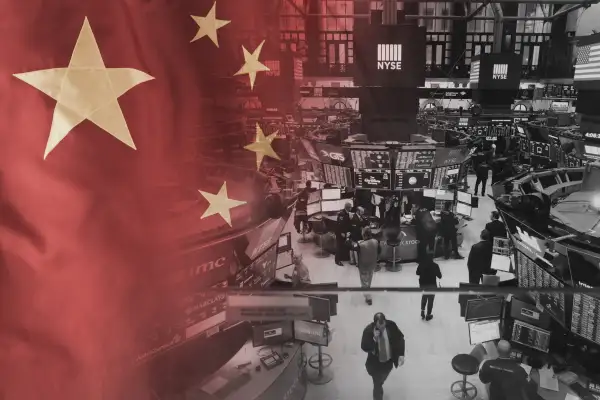Stocks Are Falling as Investors Worry About Evergrande and the Chinese Real Estate Bubble
Money is not a client of any investment adviser featured on this page. The information provided on this page is for educational purposes only and is not intended as investment advice. Money does not offer advisory services.

The global equity market is taking a hit today as investors worry about the high debt levels of one of China's largest real estate developers. The S&P 500 and Nasdaq, benchmarks of the overall stock market, were down more than 2% on Monday.
The Chinese company Evergrande has more than $300 billion in outstanding debt and is facing a potential default. Some experts are comparing the situation to the collapse of Lehman Brothers during the financial crisis of 2007-08.
While it might seem far away, the Chinese real estate bubble could impact your investment portfolio. Here's what you need to know.
What is going on with China's real estate market?
The real estate conglomerate Evergrande owns more than 1,300 projects in more than 280 cities in China, according to its site. Now, the company is in trouble.
Evergrande has been urgently trying to raise the money to pay back its lenders, investors and suppliers, but is warning that it may have to default on the billions of dollars it owes.
Earlier this month, the real estate developer also blamed negative media coverage for a decline in property sales, all while protests have broken out outside Evergrande's offices. The company has a $83.5 million payment due Thursday and another $47.5 million on Sept. 29, according to Reuters.
Evergrande isn't the only Chinese real estate company facing issues. Credit markets are pricing in the default risks for smaller rivals, and national home sales by value fell 19.7% year-over-year in August, according to The Wall Street Journal. Mark Williams, chief Asia economist at research firm Capital Economics, told The Journal that Chinese developers have borrowed too much money to expand over the last decade, and now authorities are trying to tighten policy.
Why is the stock market down today?
You may not be familiar with the Chinese housing market, but the repercussions are being felt around the world Monday, as investors who didn't seem to be fazed by the Evergrande situation in recent weeks finally took notice. Now, the real estate developer is being blamed for sell-offs across the global equity market.
Hong Kong’s Hang Seng index suffered losses Monday as Evergrande's stock plummeted around 10% on Monday.
Meanwhile, U.S. stocks were hit hard too, with the Dow dropping more than 650 points. The S&P 500 fell 2% and the Nasdaq Composite, 2.6%. Even crypto investors look to be shedding some risk, with Bitcoin's price sliding below $44,000 amid the global sell-off.
It's scary that some analysts are comparing Chinese property bubble to the housing market crash that devastated the U.S. over a decade ago. But other experts say these worries are overstated, especially given the possibility of an intervention from the Chinese government.
Still, volatile markets can also make investors a bit queasy. Just keep in mind that having a well-diversified portfolio and regularly rebalancing will pay off in the long term.
More from Money:
Investors Finally Think the Stock Market Is About to Fall
What Is the 'Golden Cross,' and Why Are Bitcoin Investors Obsessed With It?
Robinhood Is Giving College Students Who Open Accounts $15 to Start Trading
